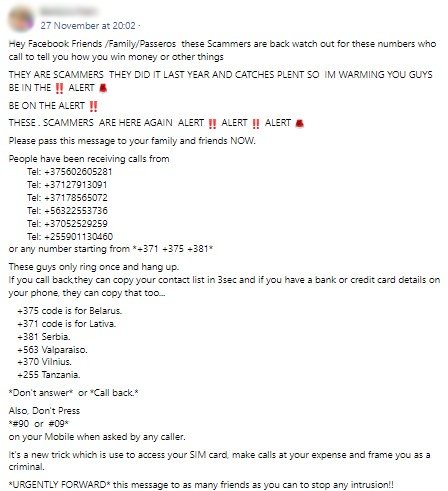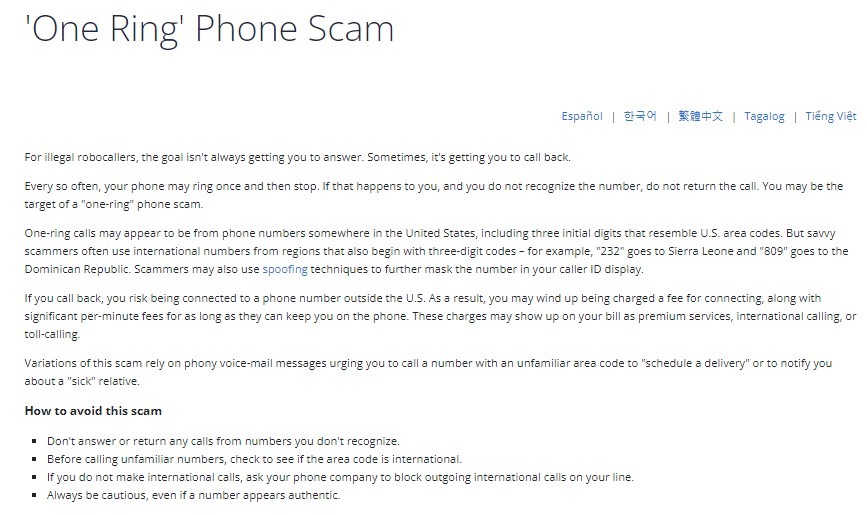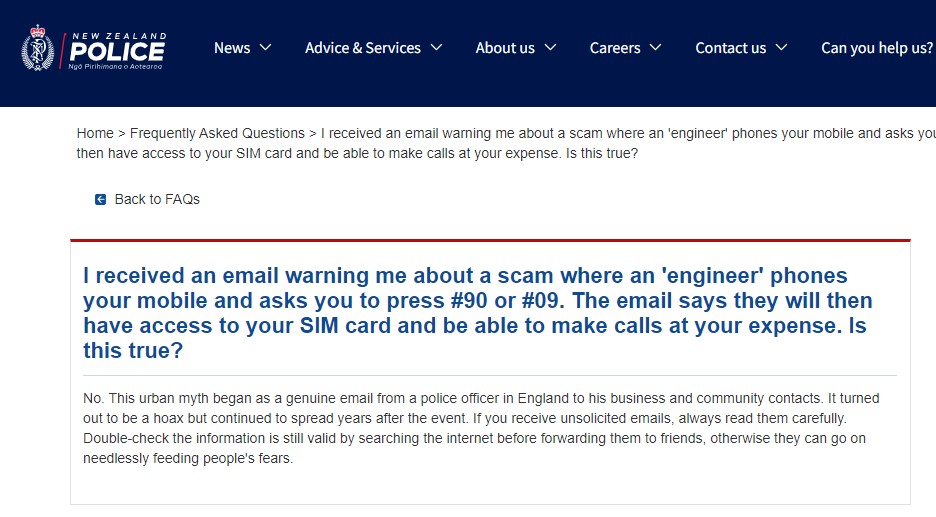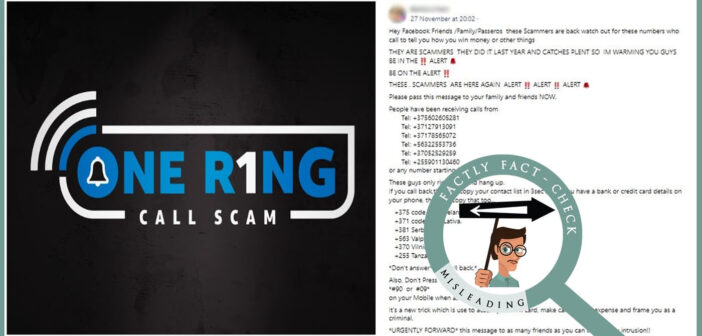An advisory message circulating on social media alarms people about the fraudulent missed calls originating from specific countries identified by the international codes +371, +375, and +381. According to the post, scammers initiate a call from an international number, allow it to ring just once, and if the recipient decides to return the call, the scammers swiftly theft the individual’s contact list as well as obtain their bank or credit card details within minutes. Additionally, the post cautions users that entering #90 and #09 codes on their phones may enable scammers to clone SIM card details, allowing them to make calls at the individual’s cost and potentially framing them as a criminal. Let’s verify the claim made in the post.

Claim: Scammers can access personal and bank details through missed calls from unknown international numbers. Dialling #90 and #09 codes on phone will allow scammers to access individual’s SIM card details.
Fact: The post highlights the ‘One-Ring’ phone scam, where scammers exploit the opportunity to collect commissions from high international rates or connection fees imposed on individuals for making international calls. However, the scam does not enable the theft of contact list details or bank information. Also, the scammers cannot access the SIM card details by making an individual dial #90 or #09 codes on his/her mobile phone. Hence, the claim made in the post is Misleading.
When we searched for the details of the claims made in the post, we found a similar warning message about unknown international numbers in an article published by a cybersecurity professional in 2019. The article talks about the ‘One-Ring’ phone scam using which the scammers are looting the commission from the high international rates or other connection fees charged for making international calls.
‘One-Ring’ Phone Scam
The ‘One-Ring’ phone scam, also known as the “Wangiri” scam, is a deceptive tactic used by scammers to trick individuals into making expensive international calls. The scam typically involves the scammer making brief, one-ring calls to random phone numbers. The intention is to prompt the recipient to call the number back, thinking it might be an important or missed call. However, the return call is directed to a premium-rate or international number, and the person making the call is charged exorbitant fees, a portion of which goes to the scammer.
The Federal Communications Commission (FCC), the Columbia government and many other organizations have cautioned people about this ‘One-Ring’ phone scam. The police from different states in India on multiple occasions cautioned people about this scam. However, there is no information indicating that scammers can steal contact list details and bank information from the phone through the ‘One-Ring’ phone scam. More details on how to get protected from the ‘One-Ring’ phone scam can be seen here and here.

Can dialling the #90 or #09 code allow scammers to access an individual’s SIM card details?
When we searched to check whether dialling the #90 or #09 code on a phone could allow scammers to access an individual’s SIM card, we found an article published by the FCC related to this scam. FCC called it a legacy telephone scam targeting business landline telephones served by a private branch exchange (PBX) or private automatic branch exchange (PABX).
According to the article, by dialling these codes on certain PBX and PABX business landline phones, the caller was allowed to transfer the call. But this does not affect cell phones in any way. One cannot access the individual’s SIM card details by making him dial #90 or #09 codes on his phone. The New Zealand Police and many fact-checking sites clarified that the messages or e-mails warning people about scammers accessing SIM card details by dialling a few numbers is a hoax. More details on various methods through which someone’s SIM card can be cloned can be read here and here.

To sum it up, scammers cannot obtain personal or bank details through the ‘One-Ring’ scam, nor can they steal SIM card information using #90 or #09 codes.



